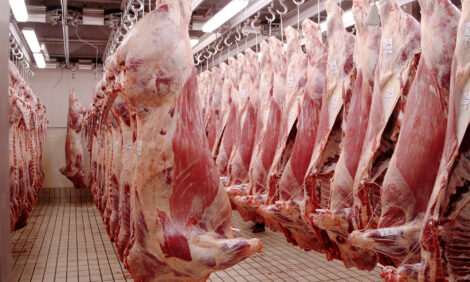



Placid Sow Answer to European Stall Ban at EuroTier
GERMANY - Many European farmers could face problems when sow stalls are banned by the EU on 1 January 2013, says Matthew Curtis, managing director of pig-breeding company ACMC.
“Farmers used to keeping sows in stalls do not know how their breeding females will adapt to group housing. This is of particular concern in Germany.
These farmers have only just over a year to make the switch from stalls so should be asking their genetics suppliers questions about the docility of their stock. Loose-housed animals need to be non-aggressive and have the ability to mix well,” he said.
This is the message that ACMC will be taking to EuroTier, the international livestock show held in Hanover, Germany, from 16 to 19 November.
By using genes from the Chinese Meishan, over the past 12 years ACMC has developed an F1 hybrid, the AC1, that has an exceptionally placid temperament and is well suited to group systems, without compromising feed conversion, growth rate or lean meat percentage. These animals, which are also highly productive, will be available to German farmers in the New Year. Eighteen months of trial data on how they perform and grade on German farms will be available on ACMC’s stand (D25 Hall 12) at the show.
Dutch research work has shown that removing stress is the key to good performance and a placid temperament contributes to this, says Matthew. In addition to results on British farms, which have had over a decade of experience of loose housing, he believes that the benefits of docility are backed up by the performance records from the Continent. For example, over a 12-month period, a 500-sow Spanish unit, in which all the AC1 sows are group-housed, has achieved a 90 per cent farrowing rate and has sold an average of 27 pigs per sow.






